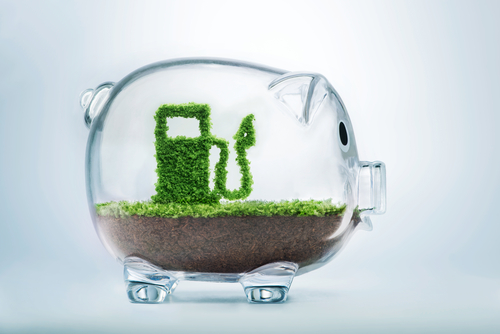
Fuel Efficiency Tips for your Motor Fleet
Improving the fuel efficiency of a company’s fleet of vehicles can have many financial and environmental benefits, especially with fuel prices on the rise.
Fuel can be one of the largest and most difficult expenses to predict and control. Therefore, it’s important for vehicle fleet managers to conserve fuel, maximise efficiency and reduce vehicle emissions by implementing fuel-efficient policies, technology and maintenance strategies.
Best Practices
Managing a fleet’s fuel usage—even for just a couple of vehicles—can feel overwhelming. The following are ways to reduce fleet fuel costs and make operations more efficient:
- Monitor driving patterns—Certain driving behaviours, such as speeding, can affect fuel consumption. In fact, fuel consumption increases 14.9% between 60mph and 75mph, according to data from the Department for Transport. Monitoring speeding, braking and acceleration patterns can indicate whether drivers are using good practices on the road or operating inefficiently.
- Cut engine idling—Idling can burn unnecessary fuel. Further, it can be illegal in certain circumstances. For example, the Highway Code states that drivers must not leave a parked vehicle unattended with the engine running or leave a vehicle unnecessarily while it’s stationary on a public road. To reduce fuel and oil waste, drivers should:
- Turn off the engine while waiting or making deliveries.
- Turn off the engine while stuck in traffic.
- Avoid idling to warm up the engine.
- Improve route efficiency—Route efficiency can be improved by using a sat-nav to ensure operations are streamlined and drivers don’t spend their day and fuel driving back and forth.
- Remove unnecessary weight from vehicles—Every extra 50kg of weight in a vehicle can increase fuel consumption by 1%-2%, according to car servicing and repair company KwikFit. This can quickly add up to thousands of litres of fuel if an organisation has multiple vehicles. Drivers should only travel with necessary parcels or equipment.
- Schedule maintenance—Preventive and regular maintenance can reduce fuel costs, extend the lifespan of fleet vehicles and ensure the safety of drivers and the community.
- Check the tyre pressure—Tyres should be inflated close to recommended pressure levels; underinflated tyres can significantly lower a vehicle’s average miles per gallon. Checking the tyre pressure should be a mandatory part of the pre-trip safety check since it not only improves the cost per mile but also helps the vehicle respond properly in unsafe situations.
- Dispatch the closest vehicle—Business margins and fuel efficiency can be improved by dispatching the closest vehicle to a new delivery or appointment. Fleet-tracking programmes can help automate dispatching.
- Leverage a fleet telematics solution—A fleet telematics solution can help managers gain data and insight into fleet status in terms of individual vehicle performance and overall operations, allowing them to make changes that will help fuel efficiency.
- Provide incentives—Fleet managers can encourage efficient driving by offering drivers incentives, such as recognition or special privileges.
- Implement driving training—Providing drivers with training regarding fuel-efficient habits can increase their awareness of fuel efficiency on the road. It can help them be mindful of things like keeping gears low when accelerating, changing gears early, driving at slower speeds and learning to read the road more effectively.
Conclusion
By implementing policies and practices that monitor and reward fuel-efficient behaviour, fleet operations can reduce fuel costs.
For more risk management guidance, contact us today.
